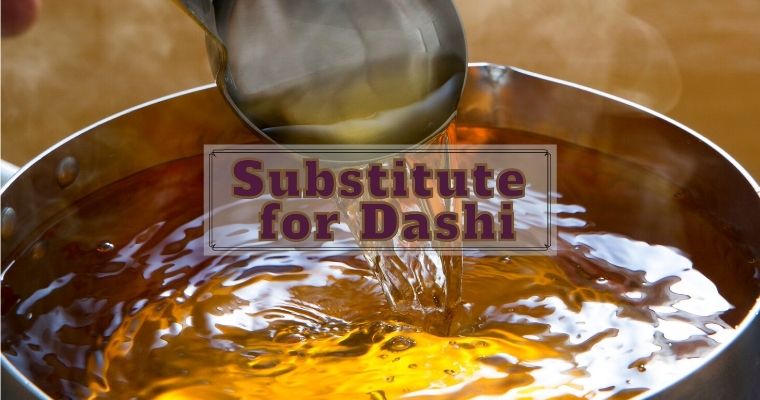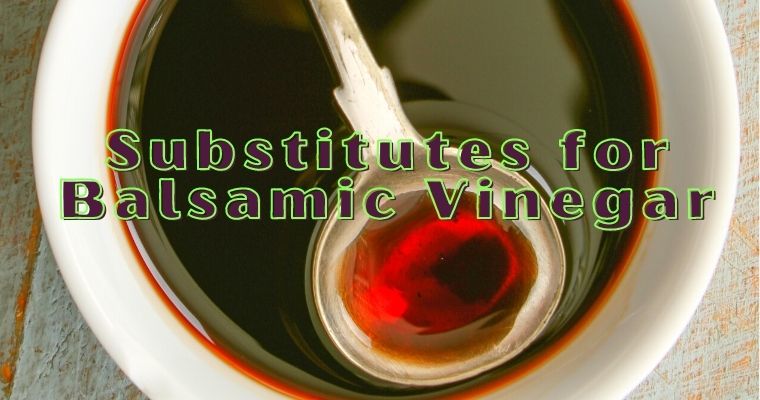Last Updated on February 5, 2024
Beet water, the liquid left over after boiling beets, is an often-overlooked byproduct of this nutritious vegetable. Beets, known for their deep red color and earthy flavor, are packed with vitamins, minerals, and antioxidants. This introduction will delve into the basic composition of beets, and set the stage for understanding how their benefits translate into the water they are boiled in.
We’ll also touch on the growing interest in health and wellness circles regarding using all parts of vegetables, including beet water, to maximize nutritional intake. This section will aim to intrigue the reader with the potential hidden benefits of beet water, a simple yet possibly powerful addition to their dietary habits.
Can You Drink Beet Water After Boiling?
Is it safe and beneficial to drink beet water after boiling beets? We’ll explore the safety aspects, including any potential changes in the water due to boiling, and the retention of nutrients from the beets themselves. This part of the post will offer a clear, concise answer backed by nutritional science, aiming to dispel any myths and provide a solid foundation for understanding the properties of beet water. This will be particularly useful for health-conscious readers looking to make the most out of their cooking processes.
Nutritional Content of Beet Water
- Vitamins and Minerals: Discuss the vitamins (like B vitamins and vitamin C) and minerals (such as potassium and magnesium) that leach into the water during boiling.
- Antioxidants: Explain how antioxidants like betalains, which give beets their color, are present in the water.
- Nitrates: Discuss how nitrates are also found in the water, which is beneficial for blood pressure.
- Caloric Content: Provide information on the caloric value and sugar content of beet water.
Health Benefits of Drinking Beet Water
Lastly, this section will focus on the health benefits of drinking beet water. Here, we will link previously discussed nutritional content to actual health outcomes. Topics such as hydration, antioxidant benefits, potential cardiovascular health improvements, and even the role of beet water in exercise performance and recovery might be explored. This final part of the post will aim to provide readers with practical, science-based reasons to consider incorporating beet water into their diets. The aim is to keep the reader informed and motivated to try this nutritious byproduct of beet cooking.
Canned or Jarred Beets: Things to Consider
While fresh beets offer certain benefits, canned or jarred beets are a convenient alternative that can still provide nutritional value. When considering canned or jarred beets, it’s important to look at the ingredients list.
Some brands add preservatives, sugars, or sodium, which might not align with your dietary needs. Opt for brands that use minimal and natural ingredients. The canning process alters some nutritional aspects; for instance, canned beets have a lower vitamin C content than their fresh counterparts. However, they still maintain significant fiber, folate, and potassium levels. Canned beets are pre-cooked and ready to eat, making them a time-saving option for busy individuals.
They can be a great addition to salads, smoothies, or as a side dish. When using canned beets, consider saving the water as it retains many nutrients and can be used similarly to water from boiled fresh beets. It’s also important to be mindful of the storage of canned or jarred beets. Once opened, they should be stored in the refrigerator and used within a few days to maintain freshness and prevent spoilage.
What to Do with Beetroot Cooking Water?
Beetroot cooking water, often discarded, is a versatile and nutrient-rich liquid that can be repurposed in various culinary and health applications. Apart from drinking it directly, one creative use is in cooking grains like rice or quinoa, which will absorb the nutrients and gain a vibrant color. This not only enhances the visual appeal of the dishes but also adds a subtle earthy flavor.
For those who enjoy baking, beet water can be used as a natural food coloring in recipes for cakes or bread, providing a unique hue without the need for artificial colors. It’s also an excellent base for soups, adding both color and nutrients. In terms of health benefits, beetroot water can be a great addition to smoothies, particularly for those who engage in physical activities. The nitrates present in beets aid in improving blood flow and can enhance exercise performance.
Beet water can also be a soothing and hydrating drink when chilled, possibly mixed with a bit of lemon juice or ginger for an extra zing. For garden enthusiasts, cooled beetroot water can be used as a natural fertilizer for plants, providing them with essential nutrients. Lastly, in the realm of natural beauty, cooled beetroot water can be used as a skin toner or in bathwater, owing to its antioxidants and anti-inflammatory properties. Thus, the uses of beetroot cooking water are diverse, ranging from culinary enhancements to health and beauty applications, making it a valuable byproduct of beetroot preparation.
What Is Boiled Beet Water Good For?
Boiled beet water, often overlooked, is a treasure trove of health benefits. This simple by-product of cooking beets is not just water dyed red; it’s a concoction brimming with nutrients. Beets are rich in vitamins and minerals, including folate, manganese, potassium, and iron, and many of these nutrients infuse into the water during boiling. This makes boiled beet water an excellent, low-calorie way to obtain some of these nutrients.
One of the significant benefits of drinking boiled beet water is its potential impact on blood pressure. Beets contain nitrates, which your body converts into nitric oxide. Nitric oxide helps to relax and dilate blood vessels, improving blood flow and lowering blood pressure. A study published in the Journal of Nutrition found that beetroot juice lowered systolic blood pressure by an average of 4-5 points in healthy adults. While boiled beet water may contain lower levels of nitrates compared to the juice, it still offers similar benefits.
Moreover, the antioxidant properties of beets are also present in the water. Antioxidants are vital in neutralizing free radicals in the body, which can damage cells and lead to chronic diseases. The betalains, responsible for the vibrant color of beets, are potent antioxidants. Regular consumption of boiled beet water can thus contribute to overall antioxidant intake, potentially reducing the risk of some diseases.
In addition to these benefits, boiled beet water is also hydrating and can be a more flavorful alternative to plain water. However, it’s important to note that those with kidney stones or issues related to oxalate intake should consult with a healthcare provider before regularly consuming beet water, as beets are high in oxalate.
Can We Drink Water After Eating Beetroot?
The question of whether one can drink water after eating beetroot stems from the common dietary myth that drinking water after consuming certain vegetables or fruits can lead to health issues. However, this is largely unfounded, especially in the case of beetroot. In fact, hydrating after eating beetroot is not only safe but also beneficial.
Beetroots are high in fiber; consuming them can increase the body’s need for water. Fiber absorbs water in the digestive system, aiding in bowel movement and preventing constipation. Thus, drinking water after eating beetroot can actually help promote healthy digestion and prevent digestive discomfort.
Additionally, beetroots are rich in various nutrients, including nitrates, which benefit blood pressure and cardiovascular health. Drinking water does not dilute or diminish the absorption of these nutrients. On the contrary, proper hydration is essential for the optimal functioning of bodily processes, including nutrient absorption and circulation.
Moreover, beetroot has diuretic properties, meaning it helps produce urine. Drinking water post beetroot consumption can support kidney function and aid in flushing out toxins from the body more effectively. This is particularly beneficial for those looking to detoxify their body naturally.
In conclusion, there is no scientific basis for the recommendation to avoid water after eating beetroot. Drinking water after consuming beetroot is safe and supports digestion, nutrient absorption, and detoxification. As with any dietary practice, listening to your body and maintaining a balanced approach is essential.
Does Boiled Beet Water Contain Nutrition?
When it comes to the nutritional value of boiled beet water, the key lies in understanding the process of nutrient leaching during boiling. Beets are packed with essential vitamins and minerals, and some of these nutrients seep into the water during the boiling process. This makes boiled beet water a nutritious, yet often underestimated, drink.
One of the primary nutrients in boiled beet water is nitrates. Beets are one of the richest sources of dietary nitrates, which are essential for cardiovascular health. When consumed, nitrates are converted into nitric oxide, a crucial molecule in regulating blood flow and blood pressure. Studies have shown that nitric oxide can help lower blood pressure, enhance athletic performance, and improve brain function.
Apart from nitrates, boiled beetwater also contains a decent amount of minerals like potassium and magnesium. Potassium is vital for maintaining electrolyte balance and normal nerve and muscle function, while magnesium is essential for bone health and energy production. You can get a good dose of these minerals by consuming boiled beet water.
Furthermore, the water retains some of the antioxidants found in beets, particularly betalains, which give beets their red color. These antioxidants are known for their anti-inflammatory and detoxifying properties, and they can help protect cells from damage.
However, it’s important to note that while boiled beet water does contain nutrition, it is not as concentrated as eating whole beets. Some nutrients, especially water-soluble vitamins like vitamin C, are sensitive to heat and might be reduced during the boiling process. Nonetheless, boiled beet water remains a valuable source of certain nutrients and can be a healthy addition to your diet, especially as a hydrating and flavorful drink.
Do Beets Lose Their Nutrients When Boiled?
Boiling beets is a common cooking method, but it often raises concerns about nutrient loss. Beets are known for their high nutritional value, rich in vitamins, minerals, and antioxidants. When boiled, some of these nutrients, particularly water-soluble vitamins like vitamin C and certain B vitamins, may leach into the water.
However, the extent of nutrient loss varies based on cooking time and temperature. Studies suggest that shorter cooking times can help preserve more nutrients. Despite some loss, boiled beets retain the most valuable nutrients, especially fiber, potassium, and manganese. Additionally, the water used for boiling can absorb some of these nutrients, particularly pigments like betalains, which are responsible for beets’ vibrant color and health benefits. Betalains have been studied for their antioxidant and anti-inflammatory properties. Hence, while boiling may slightly diminish the nutrient profile of beets, they remain a nutritious choice, and the cooking water can also offer nutritional benefits.
Conclusion
In conclusion, while boiling beets may lead to a minimal loss of certain water-soluble nutrients, they remain a highly nutritious food. The water used for boiling beets, often rich in color and nutrients, should not be discarded. This ‘beet water’ contains a variety of nutrients and beneficial compounds, including antioxidants and minerals. It can be used creatively in the kitchen – think of adding it to smoothies, soups, or using it as a natural food colorant.
Drinking beet water is safe and beneficial, offering a way to utilize the full potential of this versatile vegetable. This approach aligns with a sustainable cooking philosophy, ensuring minimal waste and maximum nutritional benefit. Whether you’re a health enthusiast or a culinary explorer, incorporating beet water into your diet can be a flavorful and healthful decision. So, next time you boil beets, remember that the vibrant water left behind is a reservoir of nutrients, just waiting to be utilized.



